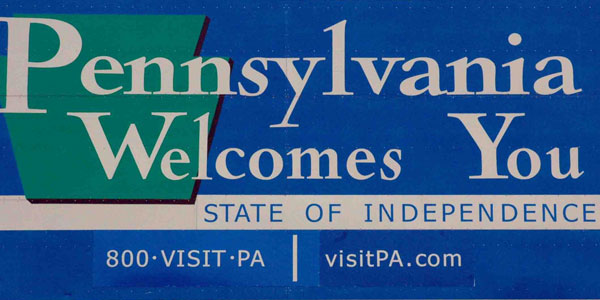Pennsylvania is about to Legalize Online Gaming
 The bill would enable existing land-based operators to launch online gaming services after having been obtained a license. Pennsylvania has recently expanded the list of legalized land-based gambling activities and the state continues to do so. At the end of April, the House of Representatives sponsored a bill to legalize and regulate iGaming, conduct of gambling games using the internet and other communications technology. The point of the proposal is to generate revenues and to protect players from the danger of playing at illegal predatory sites. The law would enable the 12 land-based casinos of the state to launch an online gaming destination, according to casino and gaming industry news. A similar model is in effect in New Jersey, a neighboring state introduced the bill regulating online gambling in 2013. Generating revenuesState Rep. John Payne introduced his bill proposal recently regulating iGaming, which was backed by the House. The bill would legalize both online poker and online casino gambling. Land-based operators would able to apply for a license. According to the New Jersey model, existing online gambling sites should partner up land-based casinos to ensure legal operation – some of them did that already. Payne argued that players gambling at illegal sites are vulnerable to online gambling tricks and unlicensed operators that often act unfairly. The new bill offers the opportunity for the 12 existing casinos in Pennsylvania to obtain a license for USD 5 million. That seems to be a bargain considering the USD 50 million price tag at slots licenses and the USD 16.5 million cost for a table games license regarding casinos classified as category one and two. The 14% tax gathered weekly after online gaming revenues would be the same that applies to table games. These revenues, like the ones generated by table games, would go into the state’s general found, while slots revenues are used for lowering property taxes. Online gaming would be prohibited at internet cafes limiting access through membership dues. The bill outlines penalties for unlicensed iGaming operators ranging from USD 75,000 to 1.2 million. Payne revealed that an economic consulting firm estimates a revenue as high as USD 120 million generated by online gambling for the first year. He added that this could help to compensate the state’s expected budget deficit estimated at USD 2 million without the introduction of new taxes. Currently Nevada, New Jersey and Delaware permits iGaming. Risks must be consideredState Sen. Mario Scavello noted that widespread online gaming could be a problem, as for users with a gambling problem it might be even more easier to access gambling destinations. However, he emphasized that online casinos will still operate even if the state opted not to allow iGaming. He added eventually that by introducing the proposed regulations the state can protect the players and also can increase its incomes. Pennsylvania Gaming Control Board spokesman Richard McGarvey expressed that the revenue generated by iGaming in New Jersey was USD 13.1 million in March, being its strongest month since online gaming was introduced in November 2013. Payne outlined that, when legalizing online gambling in Pennsylvania, it is vital to feature “responsible guidelines for Internet gambling” in operators’ overall compulsive and problem gambling plans. Pennsylvania Gaming Control Board would introduce regulations to protect users like limiting playtime, deposits and placing prominent links to help lines. It is also a priority to prevent minors from gambling. The Board would also have control over selecting the games to be permitted. Payne aimes to expel the illegal online casinos from the Pennsylvania market through the regulations. Geolocation and other gambling technology solutions provide opportunities for the operators to actually limit iGaming to the physical borders of the state. California is also considering to legalize web-based gambling, however the bill proposed recently regulates online poker only. |











